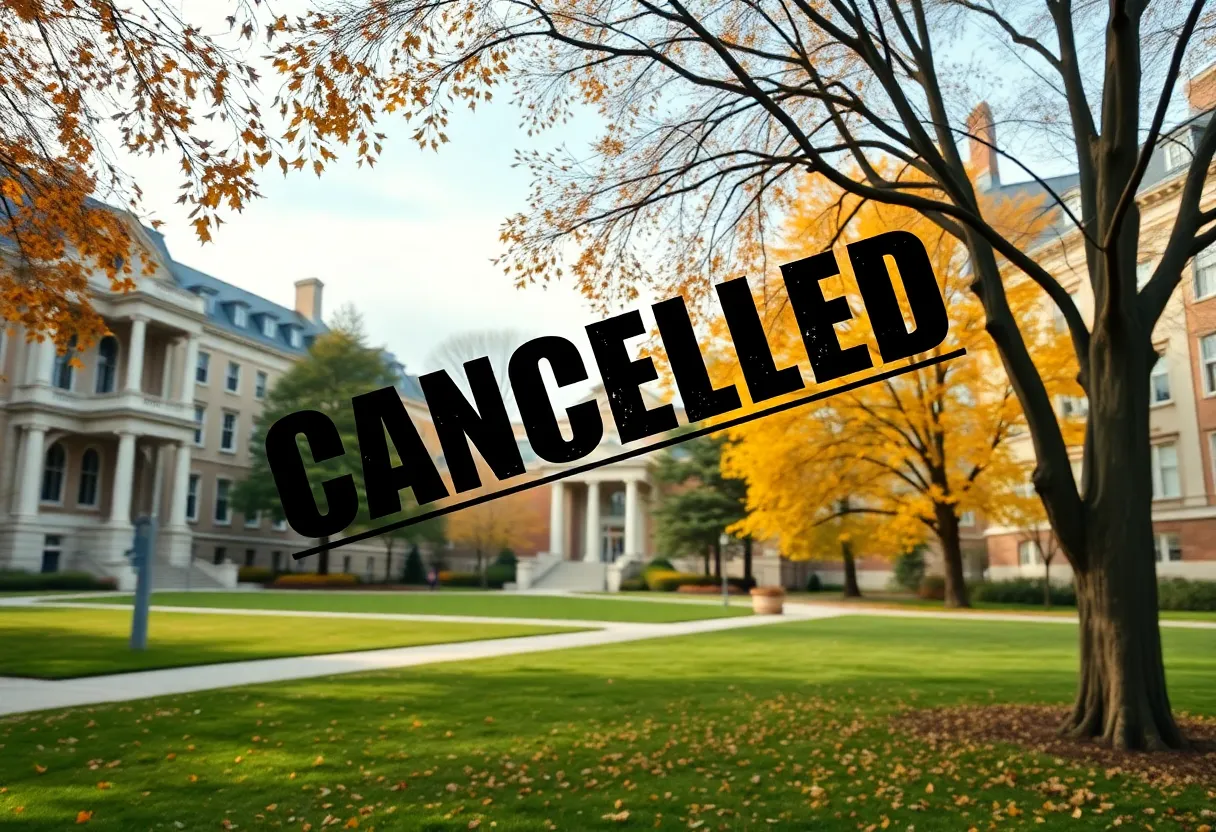News Summary
New York University has canceled a speech by legal scholar Ilya Shapiro due to heightened security concerns tied to the timing of the event. Originally planned for October 7, the speech was to discuss Shapiro’s book on cancel culture at law schools. Despite securing a different venue, concerns about safety led to the cancellation, stirring debate over academic freedom and selective treatment of speakers at educational institutions. This event’s cancellation echoes broader issues of free speech and the pressures of cancel culture that continue to affect universities.
New York City – New York University (NYU) has canceled a planned speech by legal scholar Ilya Shapiro that was set for October 7, citing security concerns. The event was intended to discuss Shapiro’s book “Lawless: The Miseducation of American Elites,” which examines instances of cancel culture at American law schools, including personal experiences related to his views on hot-button topics.
Shapiro’s speech, hosted by the Federalist Society, was particularly notable as it coincided with the two-year anniversary of a terrorist attack by Hamas on Israeli citizens. Security worries were intensified given the timing of the event, drawing attention to the broader implications of free speech and cancel culture in educational institutions. Shapiro, who is Jewish and expresses support for Israel, faced the cancelation after the event organizers sought to change the location for safety reasons but ultimately could not adjust the date due to scheduling conflicts.
The cancellation was first indicated by an administrator named Penelope Fernandes, who initially agreed to the hosting arrangements but later communicated that the event could not be held at all on the planned day. Associate Dean Megan McDermott confirmed the cancellation, attributing it to heightened security concerns that would strain NYU’s resources during that week. Interestingly, despite the cancellation of Shapiro’s event, the Federalist Society was still allowed to conduct another event later that week, raising questions about potential selective treatment of speakers.
McDermott clarified that the decision to cancel Shapiro’s speech was based on the availability of security personnel for other scheduled events, insisting that the cancellation was not directly targeted at Shapiro or his content. However, Shapiro has characterized the administration’s decision as a yielding to demands from detractors, which he refers to as “a heckler’s veto.” He also offered to send a copy of his controversial book to NYU’s dean as a means to engage on the issues presented in his work.
In a subsequent communication, NYU stated that it had not officially canceled the event, a statement that conflicts with earlier reports about the cancellation. This lack of clarity has been criticized by free speech advocates. Robert Shibley, an expert from the Foundation for Individual Rights and Expression, deemed the university’s actions a classic case of a “textbook heckler’s veto,” arguing that universities should not show favoritism by selectively disfavoring one speaker while allowing another event to proceed on the same day.
The backdrop of Shapiro’s narrative is notable; he has previously been embroiled in cancel culture discussions, having resigned from a prospective position at Georgetown University following backlash from a social media post about President Biden’s Supreme Court nominee. His tweet, which engaged with the topics of affirmative action and racial identity in judicial appointments, provoked substantial controversy.
The political landscape for free speech on colleges has evolved, with many conservatives experiencing the same dynamics of cancel culture that they once criticized when directed at left-leaning figures. As colleges continue to navigate these complex issues, concerns about how they handle speaking engagements and dissenting opinions remain a focal point of discussion.
The cancellation of Ilya Shapiro’s speech at NYU has not only reflected concerns about security but has also reinforced the ongoing discussions around academic freedom, the pressures of cancel culture, and the responsibilities of educational institutions to foster open dialogue.
Deeper Dive: News & Info About This Topic
HERE Resources
University of Missouri Cancels Black 2 Class Block Party
Additional Resources
- The College Fix: NYU Law School Cancels Speech About Cancel Culture
- Deseret News: RIP Cancel Culture
- New York Post: NYU College Republican President Ousted
- Washington Post: Hamas, Israel, and Cancel Culture
- Wikipedia: Cancel Culture
Author: STAFF HERE NEW YORK WRITER
The NEW YORK STAFF WRITER represents the experienced team at HERENewYork.com, your go-to source for actionable local news and information in New York, the five boroughs, and beyond. Specializing in "news you can use," we cover essential topics like product reviews for personal and business needs, local business directories, politics, real estate trends, neighborhood insights, and state news affecting the area—with deep expertise drawn from years of dedicated reporting and strong community input, including local press releases and business updates. We deliver top reporting on high-value events such as New York Fashion Week, Macy's Thanksgiving Day Parade, and Tribeca Film Festival. Our coverage extends to key organizations like the Greater New York Chamber of Commerce and United Way of New York, plus leading businesses in finance and media that power the local economy such as JPMorgan Chase, Goldman Sachs, and Bloomberg. As part of the broader HERE network, including HEREBuffalo.com, we provide comprehensive, credible insights into New York's dynamic landscape.





